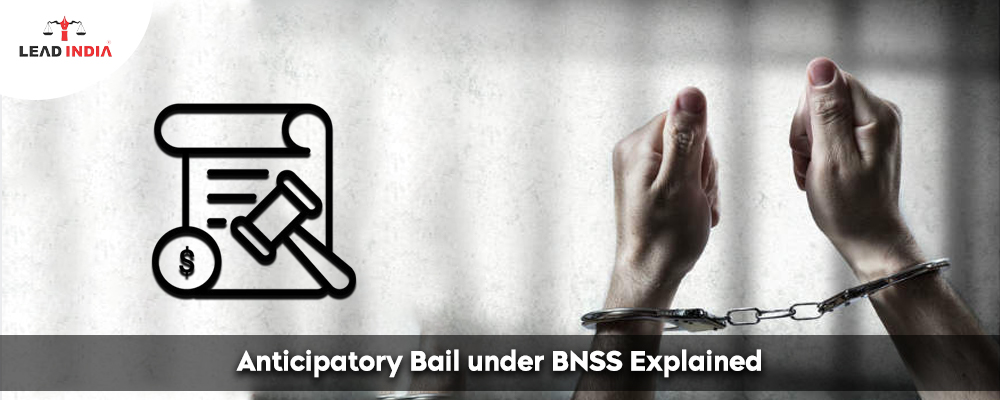Bharatiya Nagarik Suraksha Sanhita has replaced the Cr.P.C. The new BNSS has changed many Crpc provisions and added new concepts to the Act. The Cr. P.C does not define the term bail but the BNSS defines it.
Need A Legal Advice
The internet is not a lawyer and neither are you. Talk to a real lawyer about your legal issue

Legal Provisions
- Section 2(1)(b) of the BNSS defines the bail. It states that bail means releasing a person from custody on execution of bail or bail bond. It can be granted to the person accused of or suspected of the commission of the offense. Before granting bail, certain conditions were imposed upon the accused.
- Section 2(1) (d) of BNSS defines bail bonds. It states that the surety makes it for the release of the accused person. The surety gives the undertaking.
- Section 2(1)(e) defines the term bond. It states that it is made in case of release without surety. It can be a personal bond or an undertaking.
- Section 482 of the BNSS talks about anticipatory bail. Subclause 1 of the section states that if the person has a reason to believe that the person can be arrested on the charges of a non-bailable offense, then he can apply to the High Court or Court of session for the same and the court may direct that if the person be arrested, he should be released on bail.
- Sub-section 2 of the Act states the High Court or Court of Session can impose conditions while granting bail. The conditions can be that the person should attend for interrogation; that the person shall not make any inducement, threat, or promise to any person who has knowledge about the facts of the case; that the person should not leave the country without any permission; and if the bail is granted under section 480(3) of BNSS then the conditions of the above section can also be imposed.
- Subsection 3 of BNSS states that if the person is arrested without a warrant and he is ready to give the bail amount, then he should be released on bail, and if the magistrate who is taking cognizance thinks that warrant should be issued in the first instance, then a bailable warrant should be issued.
- Sub-section 4 of the above section states that section 482 of the BNSS does not apply to arrest on accusation under sections 65 and 70(2) of BNS. Section 65 states about punishment for rape on a woman under 12 and 16 yrs. of age. Section 70 of BNS talks about gang rape. Section 70(2) talks about the gang rape of a woman under 18 yrs. of age. This exception was not there under crpc. The addition of an exception under BNSS is a good step as anticipatory bail should not be granted in case of heinous offenses like rape and gang rape.
Impact of changes under BNSS
The change made under anticipatory bail has significant implications. It granted protection to women under 18 years of age, as the 18yrs is considered a minor in our country. It even showcased the seriousness with which the law considered about the offenses like gang rape. This is the need of the hour.
Anticipatory bail is the legal recourse available to the alleged accused in cases of arrest. It converts the non-bailable offense into a bailable offense. It is the subject of misuse, as it was granted in cases of serious offenses as well. Now, the relief is not available for serious offenses. Hence, the accused will not be able to get bail on the arrest. He can get bail through a normal procedure in cases of bail in non – cognizable offenses.
Lead India offers free legal advice, digital information, and other legal assistance. We offer a forum where you may talk with a lawyer and ask legal questions. Lead India’s lawyers are here to assist you with any legal issues. Lead India’s attorneys are available to help you with any legal matters. Lead India not only offers online legal support, but it also enables users to ask free specialized questions.





 Talk to a Lawyer
Talk to a Lawyer